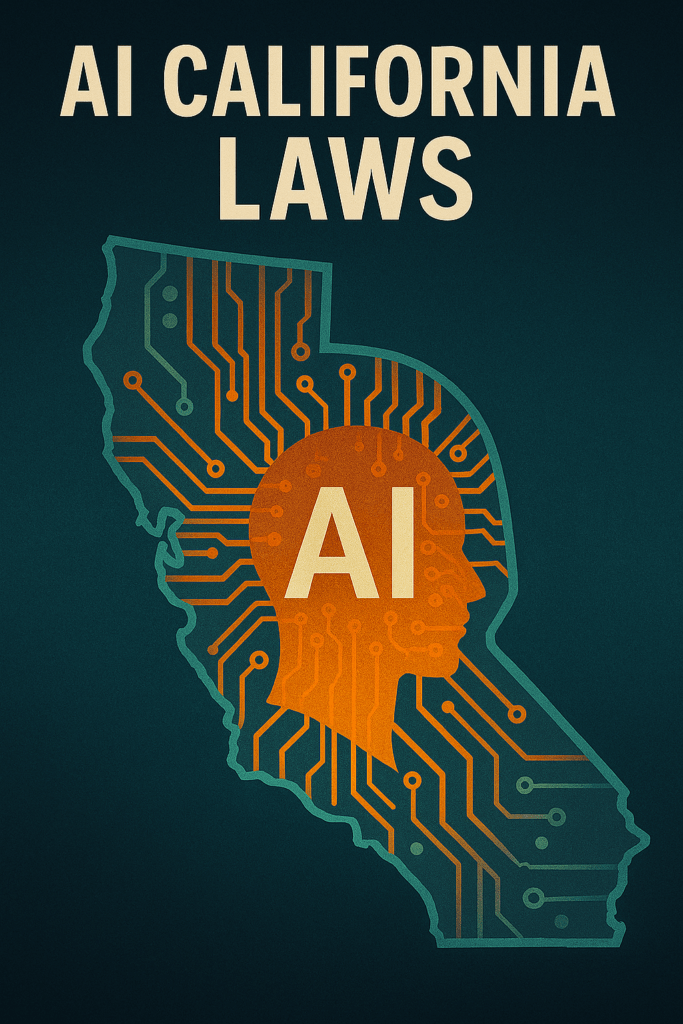| AI technology startups today are innovating at breakneck speed—but so are lawmakers. While federal legislation around artificial intelligence remains stalled, individual U.S. states are rapidly introducing new AI regulations. In fact, as of mid-2025, more than 550 AI-related bills have been introduced across the country. For founders building in California or offering products nationwide, navigating state AI compliance has become a legal and operational priority.
This patchwork approach to AI regulation creates unique risks for technology entrepreneurs. From biometric privacy and algorithmic bias to data processing transparency and model accountability, startups must understand how to comply with a shifting regulatory landscape—without stifling innovation. The Regulatory Patchwork Is RealUnlike the European Union’s unified AI Act, the U.S. regulatory framework is fragmented. States like California, New York, and Illinois are pushing forward with laws that govern how AI systems collect, process, and make decisions based on personal or biometric data. California’s approach has been particularly influential. Its Consumer Privacy Act (CCPA) and the newer California Privacy Rights Act (CPRA) include language that implicates automated decision-making and profiling. Meanwhile, states like Colorado and Connecticut are exploring “right to explanation” statutes that would require startups to disclose how their AI systems work. This means that even if your AI tool is fully compliant in your home state, deploying it across the U.S. may expose your company to new obligations. Key Issues in State AI Compliance for StartupsSeveral recurring themes are emerging across state-level legislation: First, algorithmic transparency is top of mind. States are pushing for disclosures around how AI models function and how decisions are made. This may require startups to provide documentation or accessible explanations to consumers. Second, automated discrimination and bias are major enforcement targets. If your AI tool affects employment, housing, lending, healthcare, or education, you could be held liable for disparate impact—even if the discrimination is unintentional. Third, data governance is under scrutiny. AI systems trained on consumer data must respect existing privacy laws like CCPA, CPRA, and Illinois’ Biometric Information Privacy Act (BIPA). This includes collecting proper consent, maintaining data minimization practices, and offering opt-outs for profiling. Finally, impact assessments are gaining traction. These laws would require startups to perform and document a risk analysis of their AI systems before deployment, not unlike environmental impact statements. Why Federal Preemption May Not Help YetSome federal lawmakers have proposed legislation that would preempt state AI laws—effectively freezing state-level innovation in favor of national standards. But as of now, there’s no binding federal AI framework. In the meantime, the burden falls on startups to track developments in every state where they operate or sell products. This makes state AI compliance not just a legal checkbox, but a critical component of operational strategy. What Tech Startups Should Be Doing NowTo stay ahead of regulatory risk, startups building AI-enabled products should:
Even without finalized enforcement regimes, proactive documentation and governance practices demonstrate good faith—and may mitigate liability later.
|
L.A. TECH & MEDIA LAW FIRM – Intellectual Property & Technology Attorneys


David N. Sharifi, Esq.
David N. Sharifi, Esq. is a Los Angeles based intellectual property attorney and technology startup consultant with focuses in entertainment law, emerging technologies, trademark protection, and “the internet of things”. David was recognized as one of the Top 30 Most Influential Attorneys in Digital Media and E-Commerce Law by the Los Angeles Business Journal.
Office: Ph: 310-751-0181; david@latml.com.
Disclaimer: The content above is a discussion of legal issues and general information; it does not constitute legal advice and should not be used as such without seeking professional legal counsel. Reading the content above does not create an attorney-client relationship. All trademarks are the property of L.A. Tech & Media Law Firm or their respective owners. Copyright 2024. All rights reserved.
Recent Posts
TOPICS
L.A. TECH & MEDIA LAW FIRM
12121 Wilshire Boulevard, Suite 810, Los Angeles, CA 90025.
Office: 310-751-0181
Fax: 310-882-6518
Email: info@latml.com

